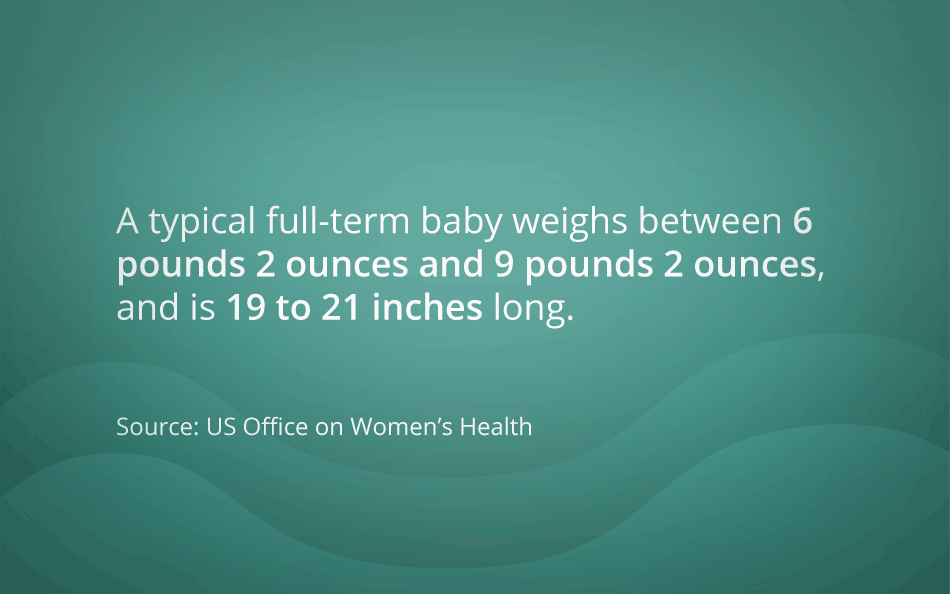When you reach the third trimester of pregnancy—weeks 25 through 38, you're in the home stretch.
On one hand, it's just a matter of waiting for your baby to make her debut. But from her point of view, there's still a lot of work to be done before she's ready for the life on the outside.
Here's a look at your baby's development in the third trimester.
Filling In and Weighing In

Source: US Office on Women's Health
The most important part of the third trimester for your baby is weight gain. Your baby will develop layers of fat on his body during the third trimester. These layers will help keep him warm after he's born, says the American Academy of Family Physicians (AAFP).
This fat also helps to fill in beneath his skin so that he doesn't come out looking wrinkled like a prune.
At this point, your baby is likely gaining weight at a rate of around a half of a pound each week, says the US Office on Women's Health.
By week 32, she'll measure in at about 15 to 17 inches and 4 to 4 ½ pounds.
Remember: If your baby is bigger or smaller than average, there's probably no need to worry. Healthy babies come in all shapes and sizes.
Shedding and Growing Hair
During the third trimester, your baby will lose the cover of vernix and lanugo—the white waxy substance and the fine layer of hair—that he needed to protect his developing skin. A little bit of lanugo may remain at first, but it's usually gone a few weeks after birth.
Speaking of hair, she'll be born with eyelashes and eyebrows, but the hair on her head might not grow in until later. Or she might be born with a full head of hair. Either way is perfectly normal, says the AAFP.
Kicking
According to the AAFP, you may notice that your baby is more active in the beginning weeks of the third trimester.
But as your baby continues to grow and has less room to move around, those kicks and punches will turn into stretches and rolls. You also may not feel them as frequently.
If you're worried about your baby's lack of activity, the AAFP recommends you count the number of movements you feel over the course of an hour. If it's less than 10, you should contact your obstetrician right away.
Your baby's lungs are the last of his major organs to develop completely, the AAFP says. Once they're mature enough, his lungs will produce a chemical that affects your hormones. Doctors suspect that this chemical may be one of the reasons why women go into labor.
A Note on Due Dates
Some women obsess over whether their baby will be born on time. But, as the AAFP explains, your due date is merely an estimated date. Only about 5% of babies are born on their exact due dates.
On the other end of the spectrum, your baby may be born after your due date. First-time moms tend to give birth later than those who already have kids, the AAFP says.
$webqFacilityNumber
Need a Physician?
